What You Need to Know About Cooking with Wine
Chef and author Julia Child once said, “I enjoy cooking with wine. Sometimes, I even put it in the food.”
Wine has been used in cooking for thousands of years. But how many times have you come across a recipe that ambiguously calls for “dry white wine” or “full-bodied red wine.” There are thousands of different varietals of wine out there. Which one do you choose?
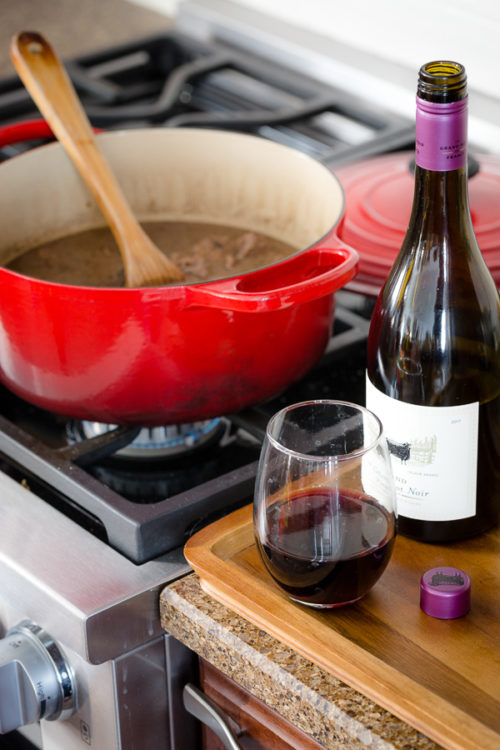
Benefits of Cooking with Wine
Even if you don’t fancy yourself a wine drinker, there are several reasons to cook with it. Wine has the ability to enhance the flavor of any dish. Cooking burns off most of the alcohol, leaving behind subtle, complex and concentrated flavors. It can also add color to a dish, such as a rich, deep burgundy sauce poured over a cut of meat.
Cooking with wine also comes with health advantages. Studies have shown that consuming red wine in moderation provides heart healthy benefits. Believe it or not, you can still reap some of those benefits through food. It also allows you to add flavor without boosting the fat content. Try sautéing vegetables or poaching fish in white wine rather than butter or oil.
Ways to Cook with Wine
- Marinade – acid in wine tenderizes meat.
- Baste – use wine in place of or in addition to chicken broth or pan juices to add moisture and flavor.
- Deglazing – add a little wine to the bottom of a hot pan to remove any stuck-on bits of food.
- Pan Sauce – simmer and reduce a red or white wine with butter or juice for a velvety smooth sauce.
- Soups and Stews – wine adds and entire new dimension of flavor when cooked low and slow.
- Poaching – try simmering fresh fruit such as pears or peaches for dramatic color and flavor.
- Baking – adds moisture and flavor to your favorite baked goods.
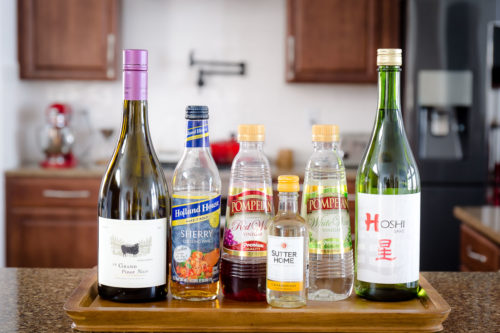
Best Types of Wine to Use for Cooking
Wine used for cooking can be broken down into following categories. The type of wine you choose really depends on the dish.
- Dry Red Wine– Merlot, Cabernet Sauvignon, Pinot Noir, Zinfandel, Syrah, Shiraz, Chianti
Use with red meat, lamb, duck, pork, hearty vegetables like mushrooms and root vegetables, and acidic sauces such as tomato.
- Dry White Wine– Sauvignon Blanc, Unoaked Chardonnay, Pinot Grigio, Pinot Blanc, Pinot Gris
Ideal with chicken, seafood, shell fish, light butter sauces, cream sauces.
- Dry Oxidized Wines– Dry Sherry, Madeira, Marsala, Vermouth
Great with chicken, pork, firm white fish and shellfish.
- Sweet Oxidized Wines– Tawny port
Its nutty caramel flavor pairs well with dessert recipes.
- Sweet Fortified Red Wines– Red port
Wonderful when used in chocolate cakes or sauces or as a savory sauce for steaks.
- Sweet White Wines– Sweet Riesling, Moscato, Gewürztraminer
Pairs well with fruit or fruit desserts or as a savory sauce for flaky white fish and shellfish.
- Rice Wine– Chinese rice wine, mirin and Japanese sake
Used in Asian cooking.
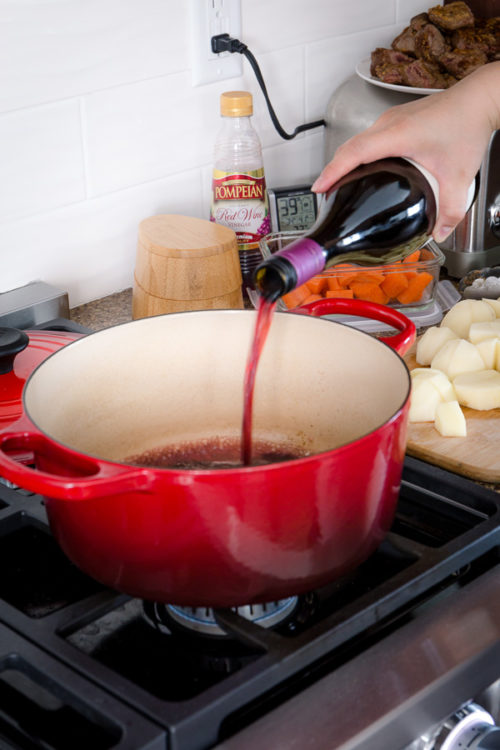
What is Cooking Wine?
During a trip to the grocery store, you have probably come across bottles labeled cooking wine. These wines are less expensive than traditional wine, but are also lower quality, higher in sodium and preservatives and contain a lot more alcohol.
Cooking wines are intended for cooking only and definitely not something you want to drink. It lacks the subtle flavors of a wine meant for drinking. Cooking wine will work in a pinch, but if possible, skip the cooking wine and choose a mid-priced drinking wine instead.
Can I Use Leftover Wine?
Yes! You do not have to open a brand new bottle of wine to reap the benefits of cooking with it. Most white wine will last between 5-7 days if stored in the refrigerator with the cork in. Red wine will last 3-5 days stored with the cork in a cool dry place.
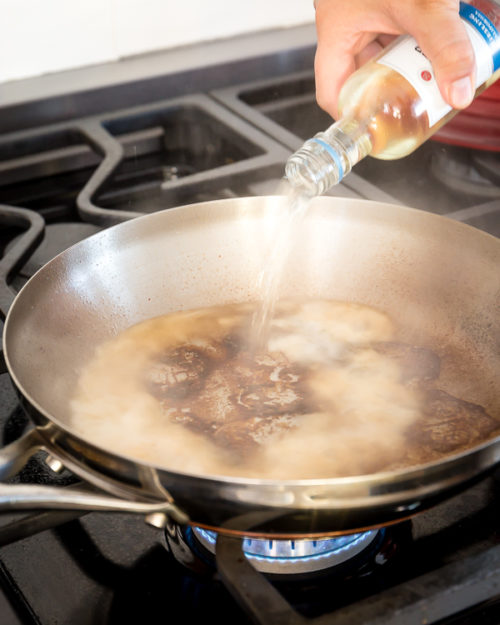
Substitutions for Wine in a Recipe
What do you do if you find yourself short on wine or you just want to omit wine from the recipe altogether? You can use plain old water, but that might dilute the flavor of the dish. Try these simple substitutions instead.
Red or white wine vinegar can be used in place of red or white wine. Be sure to dilute the vinegar with water using a 1:1 ratio to prevent a tart flavor from being imparted on the dish.
Pomegranate juice, red grape juice, cranberry juice, tomato juice, balsamic vinegar or beef stock are excellent substitutions for red wine. For white wine, try substituting with ginger ale, white grape juice, apple juice, lemon juice, and vegetable or chicken broth.
And here is a great article for alcohol substitutions in cooking.
Stay connected and join Busy Cooks community:
FACEBOOK | PINTEREST | INSTAGRAM
This article was written by Lisa Bynum for Busy Cooks.
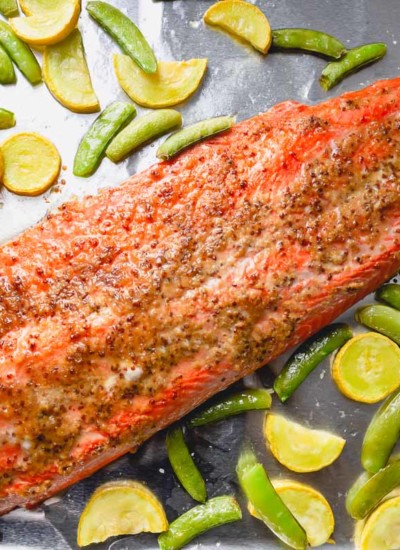
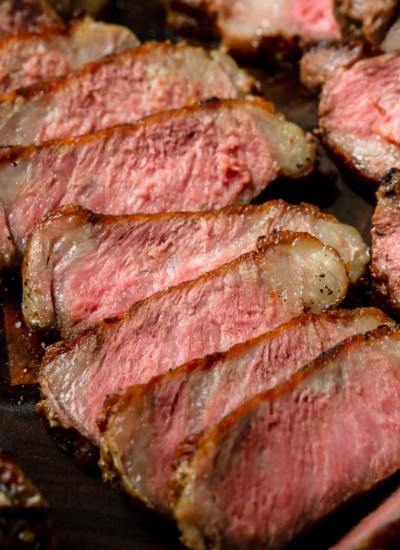
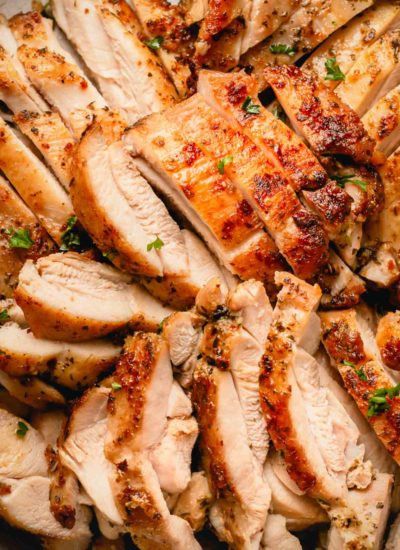
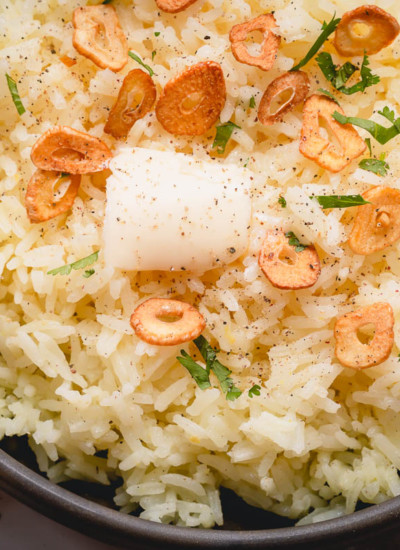

Comments + Reviews